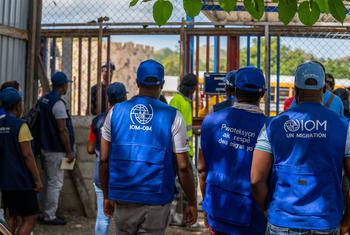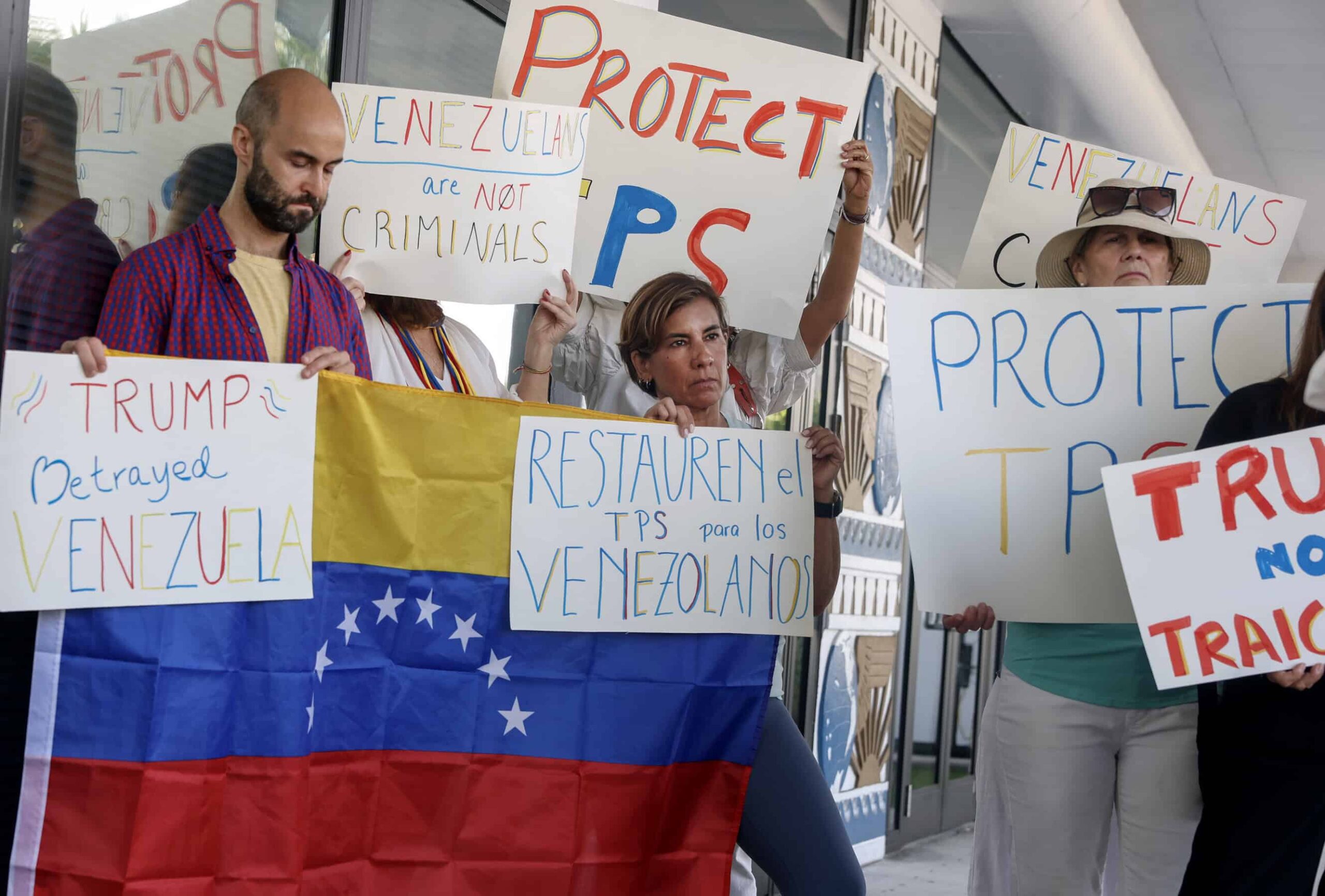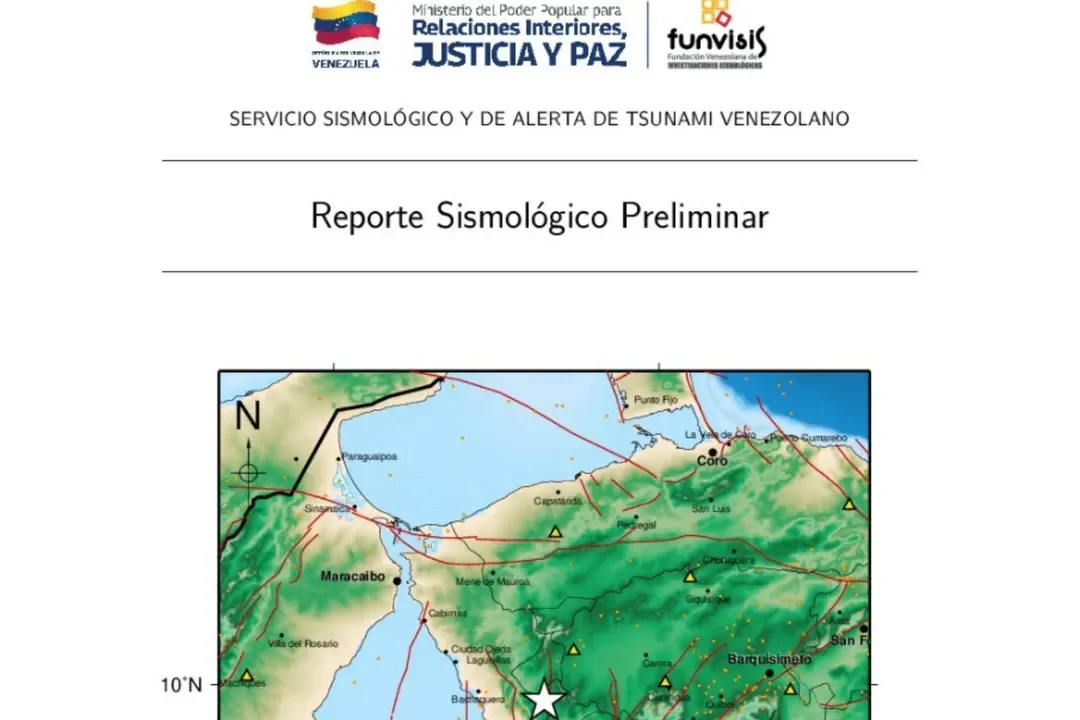Venezuelans protest against the end of TPS. Photo: Venezuelan-American Caucus.
Guacamaya, June 12, 2025. An abrupt decision by the Department of Homeland Security (DHS) under the Trump administration has jeopardized approximately 500,000 migrants by revoking their residency permits obtained through the humanitarian parole program initiated during the Biden era. Among those affected are nearly 120,000 Venezuelans, who now face an imminent deportation order amidst immigration uncertainty.
The government of President Donald Trump, upon his return to the White House, has ordered the mass revocation of the humanitarian parole program. This measure affects citizens from Venezuela, Cuba, Nicaragua, and Haiti who legally entered the United States during the Biden administration. Although it is estimated that at least 120,000 Venezuelans are part of the impacted group, authorities have not specified how many of them have managed to change their immigration status—for example, by obtaining asylum—which would allow them to remain legally in the country despite the parole cancellation.
The situation is further complicated by legal uncertainty surrounding other forms of protection, such as Temporary Protected Status (TPS). This status was first granted to Venezuelans in March 2021 by President Biden in response to the deteriorating political and humanitarian situation in Venezuela, and was extended again in 2023. However, a recent court ruling limits the scope of that extension, directly affecting those who applied for TPS following its most recent designation, which was extended this past January.
Beyond the legal implications, the impact of this measure could also be significant economically. Venezuelans with TPS, for example, stand out for their high level of education: between 40% and 54% hold university degrees. Furthermore, their labor force participation rates range between 80% and 96%, even exceeding the national average.
This measure represents a drastic shift in US immigration policy and raises questions about the immediate fate of hundreds of thousands of migrants who had managed to settle legally and actively contribute to the country’s economy.







